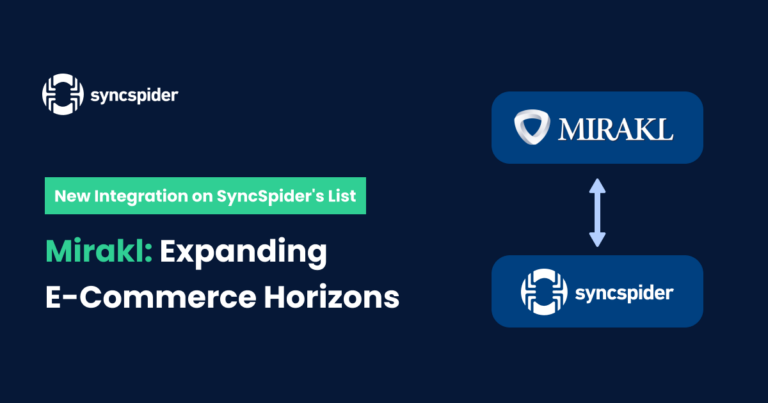Feeling stuck in the grind of your corporate job and yearning for a change? Ever thought about searching for jobs in eCommerce? If not, now might be the perfect time to give it some serious thought!
With the digital revolution thriving around us, eCommerce isn’t just an option – it is the future. And guess what? Every business, big or small, is jumping on the bandwagon. So, are you ready for a change? You’ve come to the right place! Buckle up, and let’s check out the “most wanted” job opportunities.
Unpacking the Jobs In eCommerce: Trends and Growth
We’ve all become aware that eCommerce has become a powerful player – shaking up the traditional business landscape. From buying something small, such as a silly pair of socks, to ordering a high-end tech gadget, eCommerce has transformed how people shop. Just look at this: in the eCommerce Market, the number of users is expected to amount to 2.5 billion by 2028.
We all, as consumers, enjoy the convenience, variety, and freedom to shop at our own pace, no? This has led to a huge popularity of eCommerce digital platforms. As a result, businesses are reorienting themselves to meet the demands of a growing digital-centric audience.
Predicting the Future: Trends and Growth Projections
Looking into the crystal ball of eCommerce roles, one sees a radiant, tech-infused future. The industry is expected to reach new heights due to the growing digitalization of commercial activities and the adoption of technologies like machine learning, and artificial intelligence. Feels like we are already living in a Sci-Fi movie, don’t you think?
Now, let’s share some facts: according to Statista, global retail eCommerce sales were estimated to be worth 5.2 trillion dollars in 2021. This amount is anticipated to increase by 56% over the years and to reach approximately 8.1 trillion dollars by 2026.
Business owners are not just spectators but active participants in shaping this tech future. The decisions they make today, from integrating the latest technology to investing in the right talent, are critical in determining their business’s future in the eCommerce realm. That’s exactly where you could find your dream job, helping businesses soar to new heights!
Key Roles and Job Descriptions
Alright, so you know eCommerce is booming. But what does that mean for you, job seekers, or anyone eyeing this industry? Let’s be real, it’s not just about setting up shop online and watching the cash roll in. Behind the scenes, there’s a whole symphony of different roles working together to make the magic happen.
Think about it – for example, types of e-commerce jobs are:
- strategists who figure out what sells and how to sell it
- developers who build the shop websites
- marketers who make sure we find those websites
- data analysts who help to understand customers’ needs
- integration specialists who implement integrations of apps and technologies
- designers who craft eye-catching and easy-to-navigate online stores.
- sales experts who drive revenue through a deep understanding of customer needs.
It’s a vast, vibrant field with plenty of roles that cater to different skills, interests, and career goals.
Emerging Careers in the eCommerce Sector
And that’s not all. As eCommerce evolves, new careers are popping up like mushrooms after the rain.
Ever heard of a chatbot designer? How about an AI developer or a virtual reality customer experience consultant? These might sound like jobs from a Sci-Fi movie, but they’re becoming more mainstream. And all of that happening in our lifetime! It’s time to point our ears and listen to experts in terms of what else the future might bring!
Lucky for you, if you’re the forward-thinking type, these emerging roles may just be your ticket to a rewarding career.
Building a Career in eCommerce: Skills and Qualifications
Okay, now we know there are tons of potential options for a career in eCommerce. But, what is required from YOU to make this happen? Let’s check out some key skills and qualifications that you must master before getting into an eCommerce business!
To stand out in eCommerce, you need a good handle on tech. This means mastering tools like Excel or Google Sheets for data analysis, understanding design basics in Photoshop, or even picking up some coding with HTML or CSS. It would be wise to check out some integration software solutions, as well.
Plus, in eCommerce, understanding and analyzing data is a huge advantage.
But hey, it’s not all about being a tech wizard. Soft skills matter big time. Think teamwork, communication skills, problem-solving, and the superpower to think creatively. Soft skills like this are your secret ingredients to spice your odds up!
New trends, new tech – you’ve got to be on your toes. So keep learning, whether it’s bagging a degree in Business, Marketing, IT, or Data Science, or just taking online courses to brush up your skills.
After all, in eCommerce, those who keep learning, keep leading.

The Competitive Edge: Standing Out in the eCommerce Job Market
Remember, eCommerce job search isn’t just about scrolling through endless job listings. It’s about knowing what you want and where to look for it. Want to work as an eCommerce project manager or an analyst? Look for businesses that are heavily reliant on eCommerce or companies that are planning to expand their online presence.
Now, let’s jump to some specific roles that might spark your interest, shall we? Here are some of the best eCommerce jobs available:
eCommerce Manager: The Do-It-All Dynamo
eCommerce Managers are like the conductors of a digital orchestra. They oversee everything; from the look and feel of a website, the way products are listed, and the online marketing campaigns, all the way to ensuring top-notch customer service. They need a solid understanding of the eCommerce market, trends that drive customer behavior, and the technology that makes it all possible.
Their role might involve coordinating with different teams, analyzing sales data, improving user experience, and (sometimes) handling the finer details of shipping and logistics. It’s a role that requires leadership, a strategic mindset, and a keen eye for detail.
SEO Specialist: The Search Engine Guru
SEO Specialists are the magicians of the digital world. They are the ones who ensure your website isn’t buried ten pages deep in search engine results. They’re all about keywords, meta-tags, backlinks, and making sure that Google’s ever-changing algorithms are more of a friend than a foe.
Their work can involve conducting keyword research, suggesting website improvements, collaborating with content teams, and generating SEO reports. It’s a role that needs a good understanding of online marketing, analytical thinking, and the ability to adapt quickly. Many SEO roles are remote-friendly. This means you could be optimizing websites while chilling in your PJs!
Content Writer: The Word Wizard
Content Writers in eCommerce are the wordsmiths. They cook up everything that has to do with words — the catchy product descriptions, the informative blog posts, the compelling call-to-actions, and the engaging social media content. A flair for writing, a good grip on grammar, and an ability to write in different styles for different platforms are a must in this role.
From creating a voice for a brand to convincing potential customers to hit that ‘add to cart’ button, Content Writers play a crucial role in the world of eCommerce. Their job involves understanding the audience, researching topics, and crafting content that resonates with readers while aligning with SEO strategies.
As for salaries, they can vary based on experience, type of writing, and the industry. And yes, remote work is a big perk in this role. A lot of companies hire content writers on a remote basis, so you can make a living writing from the comfort of your home office (or even a beach).
Marketing Manager: The Campaign Captain
Marketing Managers in the eCommerce world are the masterminds behind campaigns that catch your eye and motivate you to click that “Buy Now” button. They’re all about understanding the customer, creating a powerful brand narrative, and driving revenue – basically all the aspects of content marketing too.
A typical day for an eCommerce Marketing Manager might involve brainstorming campaign ideas, monitoring marketing metrics, coordinating with the sales team, and managing the marketing budget. This role requires a good understanding of the eCommerce business, creativity, analytical thinking, and excellent leadership skills.
Project Manager: The Project Pro
Project Managers are like the captains steering the ship. They oversee projects from conception to completion, ensuring everything stays on track. This could range from launching a new website and implementing a new eCommerce platform to rolling out a site-wide update.
Their role encompasses defining project requirements, setting timelines, coordinating with different teams, managing budgets, and troubleshooting issues. It’s a role that calls for excellent organizational skills, leadership, and a problem-solving attitude.
As for compensation, eCommerce Project Managers can expect to earn a healthy salary. The exact figures will, however, depend on the scope of the projects they manage, their level of expertise, and the industry they’re in.
eCommerce Developer: The Coding Champ
Now, this one is a bit more complicated in terms of tech knowledge. eCommerce Developers play a critical role in architecting, developing, and maintaining the online storefronts. Shopify Developers, in particular, specialize in creating and optimizing online stores on one of the leading eCommerce platforms – Shopify.
Having a great understanding of web development languages, like HTML, CSS, and JavaScript, is crucial. Other responsibilities can include configuring online storefronts, creating and implementing themes, integrating third-party apps, and ensuring that the eCommerce website is SEO-friendly.
Remember, developers need to stay up-to-date with the latest eCommerce trends and technologies to deliver optimal online shopping experience. But trust us, the salary of a web developer is more than worth all of this!
Integration Specialist: The Tech Connector
Integration Specialists are here to make sure that various eCommerce systems – from shopping carts to payment gateways, or email marketing tools to customer relationship management (CRM) software – all ‘talk’ to each other effectively.
Integration Specialists require a strong understanding of different software systems and APIs, along with problem-solving skills to troubleshoot any issues that might arise. They can often be involved in planning, coordinating, and implementing integrations, and ensuring that all systems are updated and functioning well together.
So, if you have an analytical mind prone to patterns and connecting things, or you already have a career that allows you to expand the analytical skills necessary. a role like this would fit you like a glove!
Just a quick note: we didn’t provide exact salaries for each role since they can vary based on your location, experience, company, and other factors. However, you can always check websites that showcase estimated yearly salaries, such as GlassDoor or Payscale (keep in mind that they usually portray salary in the US) – but please keep in mind that all of the information there is relative and might not be correct, so don’t take it as facts.

The Future is Here: How AI Impacts Jobs In eCommerce
The rising wave of technological advancements has brought along with it some game-changers for eCommerce. For example, AI and Machine Learning are helping eCommerce businesses understand their customers better and offer personalized experiences. Rather than a one-size-fits-all approach (the one we had in our childhood), these technologies allow businesses to assess individual customer behavior, anticipate their needs, and tailor their offerings accordingly, enhancing the shopping experience.
But don’t worry – AI won’t take our jobs (at least we hope so). We’ll just have to learn to use it to our advantage! The perfect time to start learning is now, folks, or we might be a bit late to the race. In that sense, here are our top picks for tools to help you keep pace with the times!
- ChatGPT (AI): Developed by OpenAI, ChatGPT is an AI-driven chatbot that generates insanely human-like text based on the prompts you give it. It’s used in eCommerce primarily for writing product descriptions and product listings – that’s how far we’ve come! Of course, it’s just one of the many implementations, so make sure to learn how to use it well.
- Canva (Non-AI): Canva is an online design tool that makes it easy to create stunning graphics that are crucial for any eCommerce. It has a drag-and-drop interface and a vast library of templates making it accessible even to those without a background in graphic design. So, it’s a perfect tool for anyone to use, and that’s what’s most important.
- Grammarly (AI): Grammarly is an AI-powered writing assistant that helps create clear, error-free content. It’s particularly useful in eCommerce for crafting compelling product descriptions and marketing copy, but also for writing blog posts (yes, we used it for this one, too).
- Luminar AI (AI): Luminar AI uses artificial intelligence to streamline photo editing processes, making it faster and easier to create eye-catching images – a skill much needed for eCommerce jobs. You don’t have to be an expert in Lightroom to edit photos anymore!
- Moz Pro (Non-AI): Moz Pro is a comprehensive SEO toolset that helps optimize visibility, track performance, and improve rankings. It’s a great solution for driving organic traffic – and that’s the main thing that keeps any eCommerce business alive. So, if you’re interested in pursuing an SEO career, be sure to check it out.
- Klaviyo (Non-AI): Klaviyo is a powerful email marketing platform that allows eCommerce businesses to create personalized, targeted email campaigns. It’s excellent for segmenting audiences and automating the email funnel. It’s primarily used for designing and scheduling newsletter campaigns in eCommerce.
- Freshworks CRM (AI): Freshworks CRM, is the AI-driven sales guru that streamlines contact management, refines sales pipeline, and segments customers. It offers predictive insights and automates tasks to keep sales flowing and conversion rates growing – everything one business could look for!
So, think of this as a perfect opportunity to find a new job role that is not yet oversaturated, and try to pursue a career in it! The first one gets the girl, so why can’t it be you?

Basically, keeping your tech skills sharp and staying adaptable to emerging technologies is not just going to open up new opportunities, but it’s also going to make you a valuable asset to any eCommerce business. After all, it comes down to this: improvise, adapt, overcome.
Let’s Wrap It Up
So, you’re at the start of your eCommerce career journey, or maybe you’re looking for a change. No matter where you are right now, there’s a world of opportunities, since eCommerce is a booming sector. So, now is the perfect time to jump into it!
Whether it’s the tech roles that interest you, the creative prospects of content writing, or the strategic aspects of project management, there’s something for everyone in this dynamic and growing field. And the best part? Almost all of the best jobs in eCommerce let you work from anywhere in the world (yes, even entry-level eCommerce jobs can work remotely). Isn’t that amazing?
So go ahead, give your career a fresh perspective, and dive into the exciting eCommerce industry, where every day brings new challenges, learning, and immense opportunities! Good luck!
Aleksandar Stanišić
Chief Operation Officer at SyncSpider
Aleksandar shares his knowledge gained through more than 15 years of working experience in C-level executive positions







